My practice so far as a student in the department of science education has been amazing. My teaching practice has not been before the mirror, nor did I bring pupils or students around to teach them. But as students, we teach ourselves; not all of us are familiar with each other, so what happens is that it builds courage, and the lecturer that handles the teaching practice course of different sections is always there to make some corrections, and though we have been thinking about this over time, there is always a flaw in the course of teaching and brilliant future teachers take corrections.
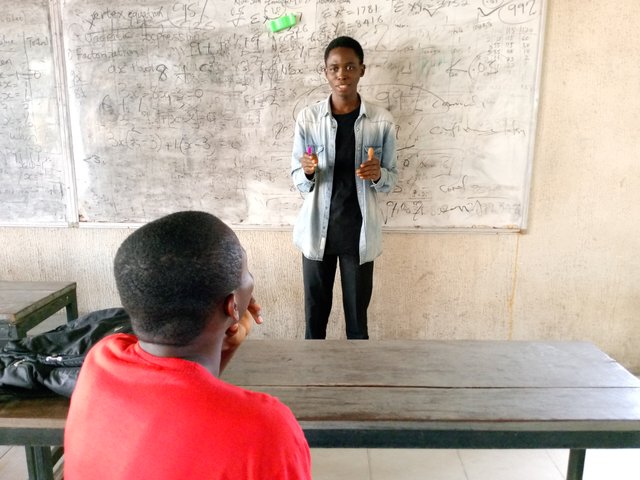 |
|---|
Tell us what your specialty is and what you would like to teach your students in the next hour-long meeting? |
|---|
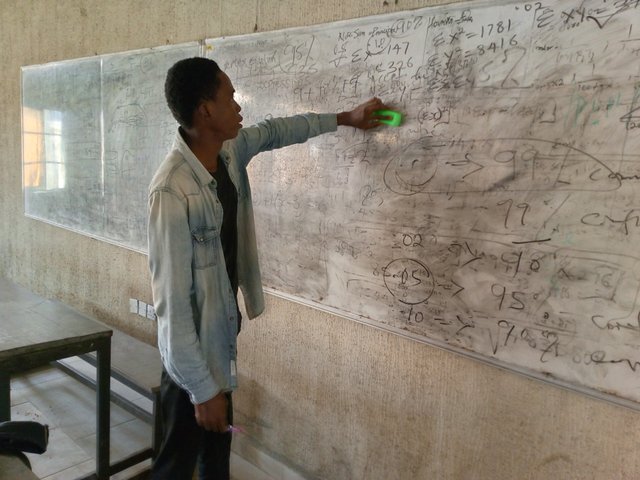
I am trained to become a professional in teaching chemistry in secondary schools, still in the field of training as a finalist. If, in the long run, I decide to make an upgrade to becoming a lecturer at the university, then I will proceed to master and, with time, a PhD to obtain a speciality. So I will be teaching separation techniques. First, the student may have had a pre-knowledge of elements combining to become compounds and that the constituent of a compound has basic elements. Take, for instance, a simple compound like water. It contains basically two known elements, which are hydrogen and water, and with methods like fractional distillation, vacuum distillation, and electrolysis, we can separate oxygen from water.
Tell us about how the learning takes place from the beginning to the end (input-process-output) |
|---|
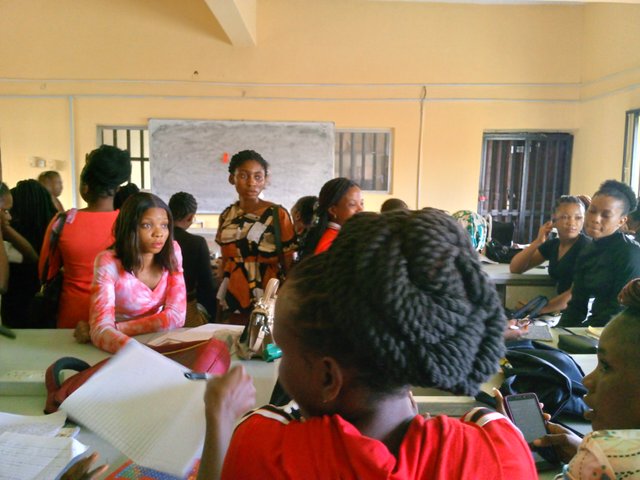
INPUT: I will first of all bring to the understanding of the student the concept of separation technique, exposing them to its uses in our daily lives. It is certain that we perform some types of separation technique in the kitchen, which is filtration. I will start with an introduction to filtration since it is popular; we parboil and filter our rice, we separate the beans from stone, so that thing process is a separation technique or process.
Like I said earlier about elements, this concept might have been taught and should be recapped so that the student may understand that for a separation to take place, it must either be in its compound or misture states.
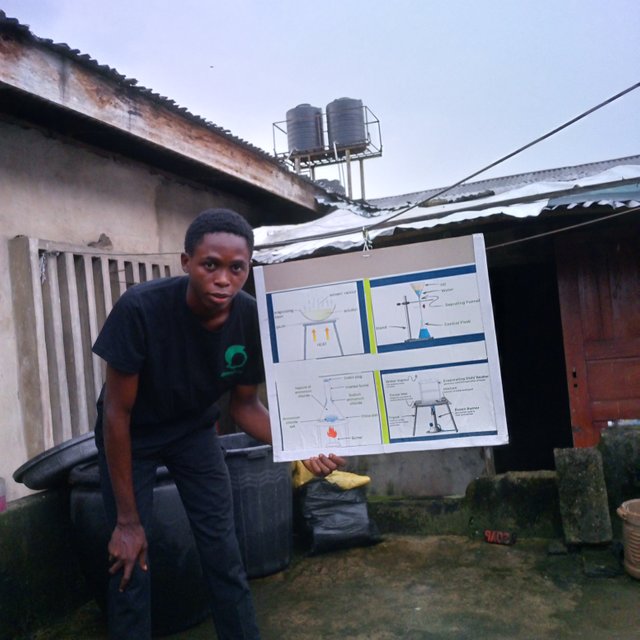
PROCESS: With the aid of some visual aids, I was able to show the student different separation techniques and the apparatus used in this separation. I stated with the one that I explained at the beginning, which is filtration. Filtration can be used in the separation of an insoluble solute from a solvent; solvents are liquids, and solutes are irregular or irregular substances, mostly solids. The apparatus used is a funnel, a filter paper, a beaker, and most especially a mixture containing a solute and a solvent.
Sedimentation is another separation technique, but in this case it is a separation where the solute in the solvent has the ability to settle; this immiscible mixture is allowed to settle, and then the solvent is poured out gently. The only apparatus needed here is a beaker containing the mixture.
I can decided to stop the lesson at this point depending on the timeframe giving, note that a teaching practice don't have to be too long, it duration could be like a normal lesson but in different section, it is different from micro teaching.
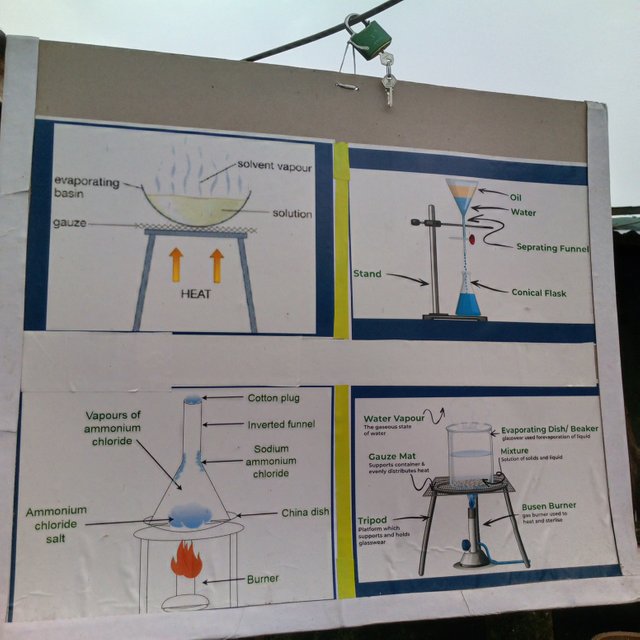 |
|---|
OUTPUT: This is actually what I will require from the student at this point. I will ask questions like, What real-life scenario have you applied the sedimentation and filtration method? and I will also ask the student to mention the apparatus used in this separation. This will help me reflect on what they learnt, identify challenges, and know where they need to be reemphasised.

How do you ensure that after the learning activity there are changes in the cognitive, affective, and psychomotor aspects of students? |
|---|
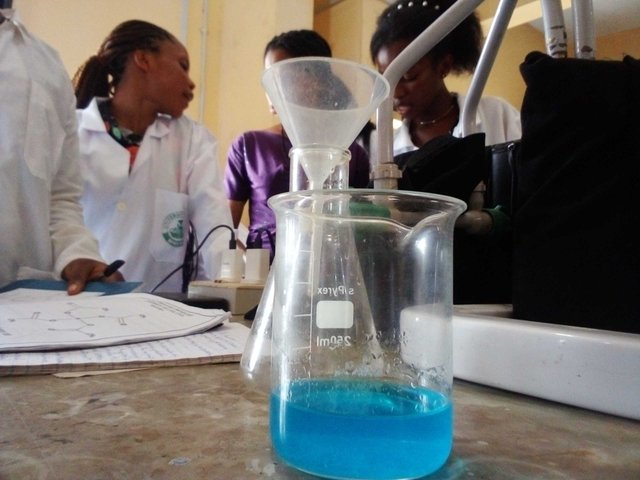 | 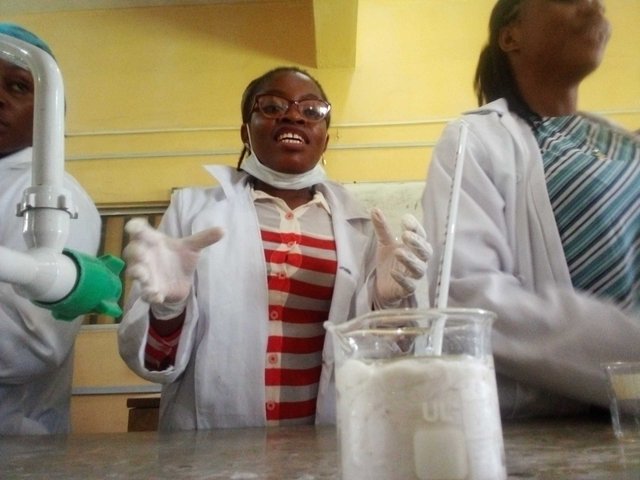 |
|---|
The cognitive aspect refers to the mental process that enables us to process, as earlier stated, which is to analyse, evaluate, store, and have the ability to retrieve when called up. That is when critical thinking is necessary. Let's be more concise.
Evaluation of the student can come as a pre-assessment, like in quizzes, tests, or exams.
Students can also create visual representations, like drawing some apparatus in the lab and how these apparatus are arranged in diverse separation techniques.
Debates can also be applied to test the knowledge and understanding of some concepts.
Connect the concept with a real-world scenario, like in the case of using the filtration methods in our kitchen.
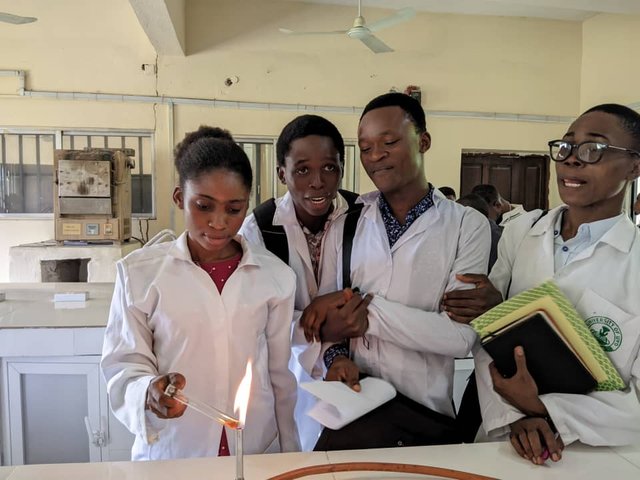
Affective, as the name implies, is how the lesson has been able to affect the learner, and this is always done by the teacher to determine what spurs up learner interest; it also deals with how this lesson has been received, responded to, valued, organised, and characterised in the learner's mind. The aim is to get feedback, so this is done by
- Surveys: measuring the changes in student attitude when introduced to the concept of separation techniques,
- Group presentation: This is done to see if the students can understand concepts better in groups as they communicate and work as a team.
- Feedback and encouragement: the results of the presentation can lead to this. I will make sure I encourage my students to read harder.
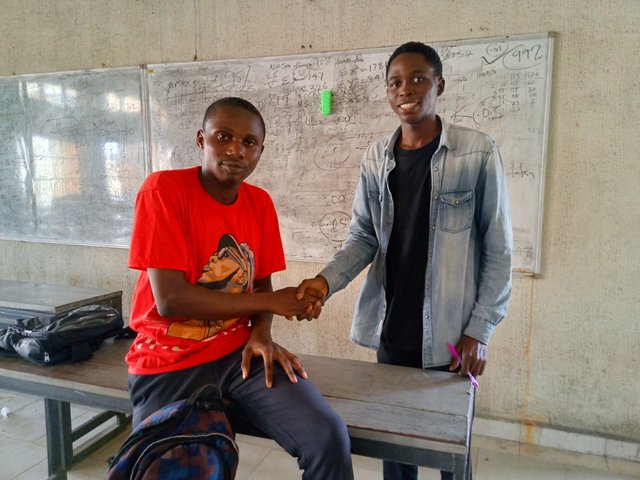 | 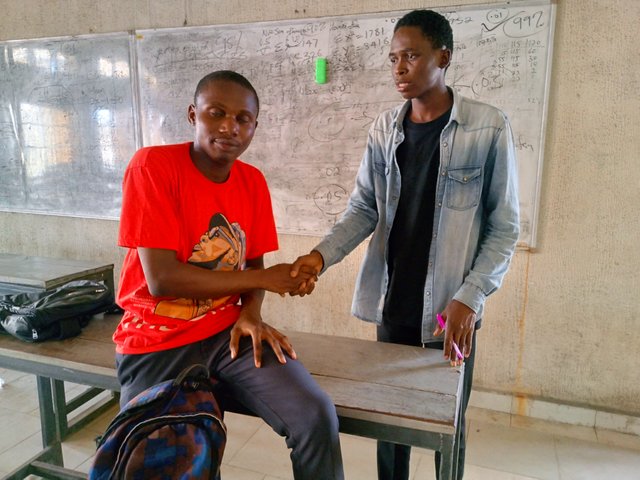 |
|---|
ENCOURAGING MY STUDENT
Psychomotor Aspect:
- Experiments, specifically hands-on kinds of experiments where my students are to perform separation techniques from simple to complex.
- I will make sure I evaluate to see how well each separation technique is performed by my student.
- Self and peer assessment: ask the students which area gave them a tough time and also which student actively participated in the experiment and their contribution in the course of the experiment.
Whether the methods and strategies you use are appropriate, how do you develop methods and strategies in future learning meetings? |
|---|
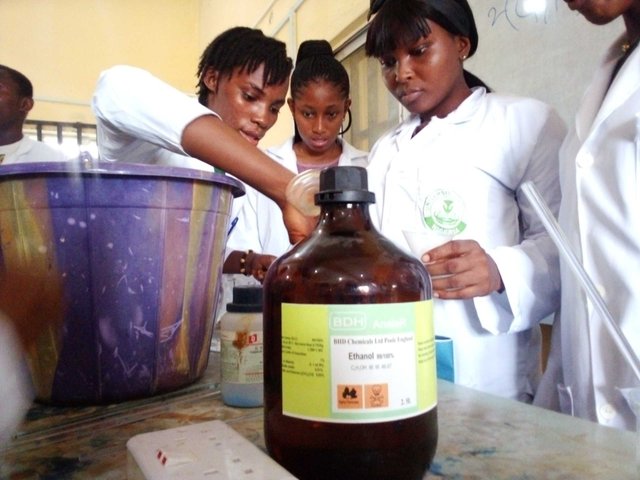
GROUP WORK
Certainly, not all methods may work for all students, and applying all at a time may not be possible due to limited time or lesson duration, so with this, I will develop methods and strategies this way.
- From the previous result of the assessment, I will identify the weaknesses of my student and look at areas of improvement.
- I will use more enticing visual tools, simulation tools, and, most especially, multimedia to expose them to a more practical aspect and theory part of the concept of separation technique.
- Group work is very important, and it must be monitored to ensure that it is performed properly.
- Industrial or resource persons who have a better understanding of ambiguous concepts may be brought to explain most terms, expanding the student's understanding.
V BLOG
I would love to see entries from @ngoenyi @bossj23, @johnmitchel and @goodybest
Congratulations, your post has been upvoted by @scilwa, which is a curating account for @R2cornell's Discord Community. We can also be found on our hive community & peakd as well as on my Discord Server
Felicitaciones, su publication ha sido votado por @scilwa. También puedo ser encontrado en nuestra comunidad de colmena y Peakd así como en mi servidor de discordia
Downvoting a post can decrease pending rewards and make it less visible. Common reasons:
Submit
X promotion link
https://x.com/nsijoro/status/1857024199182750205?t=Q6v9z1-5rqA5g3fPexz4XQ&s=19
Downvoting a post can decrease pending rewards and make it less visible. Common reasons:
Submit
My Brother, when it comes to teaching most especially to us being a student teacher in same field and specialty (chemistry). we are never perfect and no teaching methods is perfect, so that's why we have many teaching strategies and techniques to select to suit with the lesson we are to deliver and makes sure learning is passed and knowledge is gotten.
With full agreement 🤝 that we're currently trainee Teachers for secondary school chemistry but just as you have stated, I would not love to remain at the secondary school level alone as a Teacher but proceed my studies and move further to the tertiary institution.
Gladly I'm impressed that you've details well about your lesson and the Cognitive, Affective and Psychomotor aspect of the students will definitely change.
I've got so much lessons from you which will help me in my next class.
Downvoting a post can decrease pending rewards and make it less visible. Common reasons:
Submit
Your aspirations is impressive, I feel you should start from the basic teaching of secondary school student because that is where unserious and the ambiguousity of concepts starts from. Thanks for stopping by
Downvoting a post can decrease pending rewards and make it less visible. Common reasons:
Submit